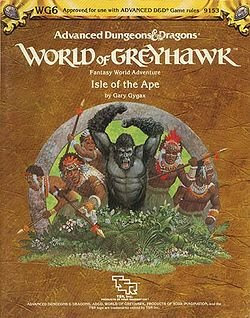Rob Kuntz
Hero
All of what Snarf is referring to is what I have since typed as the "Corporate Ladder" model. Start low, get bennies here or there as you ascend, retire with a golden watch. Rinse and Repeat. This as opposed to what Arneson had done with BM, to give a large pool of HP up front and then let the games begin.Well, let me revise that slightly - I think that the D1-3/Q1 & S1 modules reflect as high as PCs were expected to get (14th, I think?). I don’t count the Bloodstone modules, as besides being an ad for Battlesystem, those modules are trolling players and DMs on a level par with Ruins of Greyhawk Castle.
As for point #3, I recall discussions (possibly by @Rob Kuntz ?) that the expanded spell advancement was primarily meant for NPC spellcasters to account for top-tier abilities they’d have, and that PCs got them was more or less a side bonus.
On #4, it’s funny you mention that as I’d recently been rereading some of the mail in Dragon about the guy whose ungodly level character blew up FR and demanded everyone send in their character sheets so he could claim their gear and XP for defeating them (somewhere around issue #98, as I recall). There were people playing to those high levels to the 30’s or 50’s, but I don’t think they were being taken very seriously by most folks, as evidenced by the printed responses.
Gary, IMO, was obsessed with balance, this as no doubt informed by the models extant in wargames where this is a primary design concern. I saw it as more fluid as the rules (then) were open and the DM could adjust balance issues on the fly. There have been other rule-sets that stepped sideways to this model, notably Call of Cthulhu. OD&D/1E is what it is.
As for the spells I never liked the system and as early as 1975 had devised a granular overlay and reorganization of them to make the whole more dimensional.



